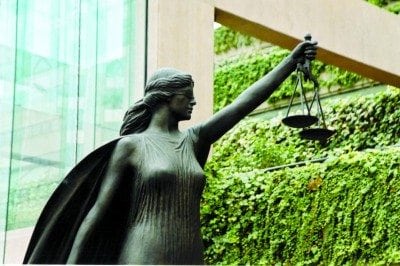THE British Columbia Court of Appeal on Monday imposed new conditions on solitary confinement in federal prisons, while granting the federal government’s request for an extension of time before the January 2018 decision to strike down the federal solitary confinement laws comes into effect.
The original BC Supreme Court decision will come into effect on June 17, 2019, at which time the existing legislative provisions on administrative segregation will be invalid.
The Court of Appeal wrote that while the federal government will be granted the extension of time that it seeks, the conditions of solitary confinement must change immediately: “While we are prepared to extend the suspension of the declaration of constitutional invalidity, that cannot be a justification for the federal government to maintain unchanged the conditions of inmates kept in administrative segregation. Without violating the existing legislation, the government must take steps to deal with constitutional concerns.”
The organizations who brought the Charter challenge, the BC Civil Liberties Association and the John Howard Society of Canada, stated: “While we await the Court of Appeal’s ruling on our challenge, today’s decision makes clear that the conditions of solitary confinement in federal prisons must change immediately.”
The Court of Appeal’s conditions include the following:
- Daily visits of health care professionals with inmates in administrative segregation must include a visual observation of the inmate, unless, due to exceptional circumstances, such observation would jeopardize the safety of Correctional Service of Canada personnel.
- Inmates in administrative segregation must be offered an additional 30 minutes of yard time each day, and have an opportunity to be out of their cells for a minimum of 2½ hours per day.
- Prisoners must be allowed to have legal counsel at hearings related to their placement in solitary confinement, and must be informed of that right. The BC Supreme Court found that the right to counsel has been denied to prisoners in such hearings.
- The government must ensure that Indigenous Elders routinely visit segregation units and be able to offer one on one counselling to Indigenous prisoners.
- The government must start to open units outside of solitary confinement for prisoners who do not wish to integrate into the mainstream prison population or who are assessed at being unable to integrate safely.
- A system of review of solitary placements must be created so that “no inmate will remain in administrative segregation for more than fifteen days without such continued detention being authorized by a senior official who is neither the institutional head of the institution where the inmate is incarcerated nor a person who is subordinate to that institutional head.”
Following a 9-week trial in the summer of 2017, the BC Supreme Court issued a judgment in January 2018 in favour of the BCCLA and JHSC. The BC Supreme Court held that the laws are unconstitutional in that they permit prolonged, indefinite solitary confinement, fail to provide an independent review of segregation placements and deprive inmates of the right to counsel at segregation review hearings.
The trial court determined that the regime violates prisoners’ Charter section 7 right to life because it places prisoners at increased risk of self-harm and suicide. It violates their right to security of the person because it causes psychological and physical harm.
The Court further held that the laws were unconstitutional because they discriminate against the mentally ill and disabled, and against Indigenous prisoners. The federal government has not appealed the determination that the law discriminates against Indigenous prisoners.
The Reasons for Judgment of the BC Court of Appeal can be located https://www.courts.gov.bc.ca/
The BCCLA and JHSC are represented in this case by Alison Latimer and Joseph Arvay of Arvay Finlay LLP, Vancouver.













